- About
- Academics
- Admissions & Aid
- Life
- Research
- News & Events
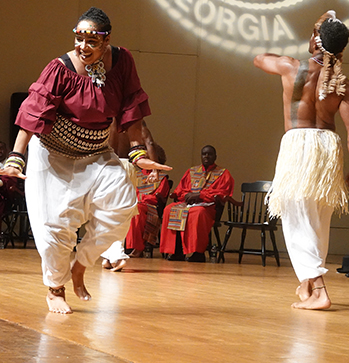
Home
> Academics
> Majors
> Africana studies
Africana Studies
Africana Studies prepares socially-conscious servant leaders through the interdisciplinary study of African American and Pan-African cultural and historical experiences. Students gain the skills to analyze and address systemic issues impacting communities of African descent worldwide.
The Program at a glance
EXPLORE THE GLOBAL EXPERIENCES OF PEOPLE OF AFRICAN DESCENT
Through rigorous coursework and research opportunities, Africana studies and research center students connect historical insights with modern challenges to create and shape impactful change.
Department
Learn More
Africana Studies enhances the agency and efficacy of Men of Morehouse by facilitating rigorous interdisciplinary research, cooperative learning, and service-learning experiences.
Bachelor of Arts in Africana Studies
Learn More
Africana studies provides courses of study that lead to a Bachelor of Arts, a minor, or a concentration that examines the broad scope of the Black experience in general, and those of Black men in particular.
Africana Studies Minor
Learn More
The minor in Africana studies is a perfect complement to all majors and includes core courses, designated humanities courses, and approved elective courses.
Public History and Historic Preservation Minor
Learn More
The Public History and Historic Preservation minor assists students, belonging to various disciplines, how to strengthen their research and writing skills as well as expand the application of quantitative and qualitative data.
About Africana Studies
AFRICANA STUDIES PREPARES MEN OF MOREHOUSE TO BECOME CRITICAL-THINKING GLOBAL CITIZENS.
The program equips students with the tools to examine the complexities of Black life and its intersection with global sociopolitical systems. By developing an understanding of African and African experiences, students gain the knowledge and skills to address pressing issues in justice, equity, and representation.
Through research, service, and advocacy, Africana Studies enables students to lead with integrity and contribute meaningfully to the community beyond their life at Morehouse College.
-
Overview
Overview
Our students are committed to the philosophy of servant leadership and are keenly aware of their inner strengths, cultural capital, and sociopolitical challenges. We use an integrative approach to examine questions of social justice and Black life.
Our HBCU college program enhances the agency and efficacy of Men of Morehouse by facilitating rigorous interdisciplinary research, cooperative learning, and service-learning experiences. Faculty and student research efforts seek to amplify the voices and increase the visibility and understanding of people of African descent through documenting, studying, and sharing African narratives contextualized by an array of scientific data.
The program seeks to empower students to use cutting-edge technology to produce and share their research. The program challenges students to integrate research skills grounded in discreet disciplines within a transdisciplinary Pan-African analytical framework. The minor and concentration enhance the cosmopolitan worldview of students in all fields of study, including science, medicine, business, and economics.
Students in the Africana Studies and Research Center at Morehouse College gain more than just academic knowledge; they develop a nuanced understanding of African and African diasporic experiences, equipping them to address global issues with insight and compassion.
Through a rigorous curriculum and innovative research opportunities, students acquire critical thinking, leadership, and analytical skills that empower them to become change-makers in diverse fields. The program creates a deep appreciation for cultural heritage and provides tools for engaging in meaningful dialogue about social justice, identity, and equity. Graduates emerge ready to impact their communities and the broader world.
-
Outcomes
Outcomes
Our students are competitive candidates for graduate study and careers in a program matching their interests and preparation. As a holistic major, Africana Studies is a foundation for students who wish to pursue graduate work in art, economics, English, cinema, governmental affairs, history, international affairs, journalism, law, mass communications, music, political science, psychology, religion, sociology, and theater.
Africana studies teaches seven core skills: critical thinking, creative thinking, effective writing, effective oral communication, value awareness, computer literacy, and quantitative analysis.Students successfully mastering this major’s course of study demonstrate the following learning outcomes:
- Recite the historical chronology that gave rise to the field of African American studies and identify the important contributors to the field, as well as explain the relevance and multidisciplinary scope of the field
- Become ethical citizens, scholar-activists, and leaders by applying social justice principles
- Demonstrate African-centered critical thinking on the cultural heritage of Africans of the continent and the diaspora in well-written and solidly researched digital humanities assignments
- Analyze the dynamics of social change in Black societies
- Design empirical interdisciplinary research on African peoples’ life chances guided by principles of empowerment strategies
- Execute a well-planned, thoroughly researched, and well-written service-learning capstone project guided by Africana Studies and Research Center methodology and the principles of integrative learning
-
Earn the Major
BACHELOR OF ARTS IN AFRICANA STUDIES
REQUIREMENTS
Africana studies provides courses of study that lead to a Bachelor of Arts, a minor, or a concentration that examines the broad scope of the Black experience in general, and those of Black men in particular.
Through rigorous coursework in Africana studies and at the Research Center, including core courses, designated humanities courses, and approved elective courses, the Africana studies major will navigate the relationship between various aspects of Black life.
The eight required core courses include:
- HAFR 100— The African American Experience or HAFR 101-Introduction to Africana Studies
- HAFR 200— Black Liberation Movements
- HAFR 300— Africana Studies Theory
- HAFR 301— Interdisciplinary Research Methods: Frameworks and Fieldwork
- HAFR 400— The Africana Studies Capstone I
- HAFR 401— The Africana Studies Capstone II
- HHIS 221— History of African Americans to 1865
- HHIS 222— History of African Americans Since 1865
The three designated humanities courses include:
- Literary Studies
• HENG 380— Survey of African American Literature I or
• HENG 480— Survey of African American Literature II - Historical Studies
• HHIS 257— History of Africa I or
• HHIS 258— History of Africa II - Religious Studies
• HAFR 375— Africana Muslims or
• HHIS 361— History of the Black Church or
• HREL 310— The African American Church
The required one communications studies course can be any communication studies course.
CURRICULUM
General Education (Core) — 33-48 hours
Refer to the general education requirements for more information.
Africana Studies Major — 24 hours
Choose one from the list below:
- HAFR 100 The African American Experience
- HAFR 101 Introduction to Africana Studies
The following courses are required:
- HAFR 200 Black Liberation Movements
- HAFR 300 Africana Studies Theory
- HAFR 301 Interdisciplinary Research Methods
- HHIS 221 History of African Americans I
- HHIS 222 History of African American II
Choose one from the list below:
- HAFR 257 History of Africa to 1800
- HAFR 258 History of Africa since 1800
The following courses are required:
- HAFR 400 Africana Studies Capstone I
- HAFR 401 Africana Studies Capstone II
Math Requirement – three hours
Students complete HMTH 130 Basic Statistics or another research statistics course in Business, Psychology, Sociology, or one of the STEM disciplines.
Religion Requirement – three hours
- HAFR 375 Africana Muslims
- HHIS 361 The History of the Black Church
- HREL 310 The African American Church
Humanities – three hours
Humanities course at 200 level or higher required. Suggested options:
- HAFR 201
- HAFR 210
- HAFR 212
- HAFR 398
- HAFR 399
- HAFR 498
- HENG 380
- HENG 480
- HHIS 258
- HHIS 261
- HHIS 262
- HMUS 116
- HMUS 310
- HMUS 404
- HPHI 475
- HREL 320
Social Sciences – three hours
Social Sciences course at 200 level or higher required. Suggested options:
- HAFR 250
- HAFR 398
- HAFR 399
- HAFR 498
- HCOM 354
- HCOM 457
- HCOM 461
- HCOM 483
- HCOM 485
- HCOM 489
- HECO 406
- HHLS 201
- HPSC 251
- HPSC 302
- HPSC 348
- HPSC 372
- HPSC 464
- HPSC 477
- HPSC 490
- HPSY 204
- HPSY 260
- HPSY 297
- HPSY 369
- HPSY 390
- HSOC 215
- HSOC 255
- HSOC 259
- HSOC 300
- HSOC 416
- HSOC 422
- HSOC 455
-
Earn the Minor: Africana Studies
AFRICANA STUDIES MINOR
The minor in Africana Studies is a perfect complement to all majors and includes core courses, designated humanities courses, and approved elective courses.
REQUIREMENTS
Required Courses – 12 Hours
Choose one:
- HAFR 100 The African American Experience
- HAFR 101 Introduction to Africana Studies
Required courses:
- HAFR 300 Africana Studies Theory
- HHIS 221 History of African Americans I
- HHIS 222 History of African Americans II
Approved Electives – Six Hours
- HAFR 201, 210, 212, 250, 300, 398, 399, or 498
- HBIO 320
- HCTM 255, 258, 348
- HECO 406
- HENG 354, 457, 461, 483, 485, 489
- HHIS 258, 261, 262
- HHLS 201
- HMUS 116, 310, 404
- HPHI 475
- HPSC 251, 302, 348, 372, 464, 477, 490
- HPSY 204, 260, 297, 369, 390
- HREL 320
- HSOC 102, 103, 156, 215, 255, 259, 300, 416, 422, 455
-
Earn the Minor: Public History and Historic Preservation
Public History and Historic Preservation MINOR
The Public History and Historic Preservation minor assists students, belonging to
various disciplines, how to strengthen their research and writing skills as well as expand the application of quantitative and qualitative data. Students learn the many aspects of public history and historic preservation practices, including collections care and management, museum education, historic site interpretation, exhibit design, historic preservation, museum administration, archives management, oral history, content development, and digital history.
Regardless of the disciple, students engage in discussions and exercises that build on the
skills one learns as a scholar- effective research, contextual understanding, and critical
analysis.Outcomes
• Evaluating, assessing, and drawing meaning from primary sources, historical evidence,
quantitative data, buildings, and material culture.
• Conducting original historical research, including asking historical questions and
finding pertinent primary and secondary source materials in archival collections (both
physical and online)
• Thinking critically and analytically about exhibiting research findingsMINOR COURS OF STUDY = 15 credits
- HAFR 201 Public History and Public Memory: Research Methods to Documenting History
- HAFR 202 Historic and Cultural Preservation: Telling Stories through Buildings, Sites, and Landmarks.
- HAFR 302 Museum Collection Care of Historical Objects.
- HAFR 350 Exhibition Design and Content Development: Historical Sites, Narratives, and Culture
- HHIS 490 SPECIAL PROJECTS
Overview
Our students are committed to the philosophy of servant leadership and are keenly aware of their inner strengths, cultural capital, and sociopolitical challenges. We use an integrative approach to examine questions of social justice and Black life.
Our HBCU college program enhances the agency and efficacy of Men of Morehouse by facilitating rigorous interdisciplinary research, cooperative learning, and service-learning experiences. Faculty and student research efforts seek to amplify the voices and increase the visibility and understanding of people of African descent through documenting, studying, and sharing African narratives contextualized by an array of scientific data.
The program seeks to empower students to use cutting-edge technology to produce and share their research. The program challenges students to integrate research skills grounded in discreet disciplines within a transdisciplinary Pan-African analytical framework. The minor and concentration enhance the cosmopolitan worldview of students in all fields of study, including science, medicine, business, and economics.
Students in the Africana Studies and Research Center at Morehouse College gain more than just academic knowledge; they develop a nuanced understanding of African and African diasporic experiences, equipping them to address global issues with insight and compassion.
Through a rigorous curriculum and innovative research opportunities, students acquire critical thinking, leadership, and analytical skills that empower them to become change-makers in diverse fields. The program creates a deep appreciation for cultural heritage and provides tools for engaging in meaningful dialogue about social justice, identity, and equity. Graduates emerge ready to impact their communities and the broader world.
Outcomes
Our students are competitive candidates for graduate study and careers in a program matching their interests and preparation. As a holistic major, Africana Studies is a foundation for students who wish to pursue graduate work in art, economics, English, cinema, governmental affairs, history, international affairs, journalism, law, mass communications, music, political science, psychology, religion, sociology, and theater.
Africana studies teaches seven core skills: critical thinking, creative thinking, effective writing, effective oral communication, value awareness, computer literacy, and quantitative analysis.
Students successfully mastering this major’s course of study demonstrate the following learning outcomes:
- Recite the historical chronology that gave rise to the field of African American studies and identify the important contributors to the field, as well as explain the relevance and multidisciplinary scope of the field
- Become ethical citizens, scholar-activists, and leaders by applying social justice principles
- Demonstrate African-centered critical thinking on the cultural heritage of Africans of the continent and the diaspora in well-written and solidly researched digital humanities assignments
- Analyze the dynamics of social change in Black societies
- Design empirical interdisciplinary research on African peoples’ life chances guided by principles of empowerment strategies
- Execute a well-planned, thoroughly researched, and well-written service-learning capstone project guided by Africana Studies and Research Center methodology and the principles of integrative learning
BACHELOR OF ARTS IN AFRICANA STUDIES
REQUIREMENTS
Africana studies provides courses of study that lead to a Bachelor of Arts, a minor, or a concentration that examines the broad scope of the Black experience in general, and those of Black men in particular.
Through rigorous coursework in Africana studies and at the Research Center, including core courses, designated humanities courses, and approved elective courses, the Africana studies major will navigate the relationship between various aspects of Black life.
The eight required core courses include:
- HAFR 100— The African American Experience or HAFR 101-Introduction to Africana Studies
- HAFR 200— Black Liberation Movements
- HAFR 300— Africana Studies Theory
- HAFR 301— Interdisciplinary Research Methods: Frameworks and Fieldwork
- HAFR 400— The Africana Studies Capstone I
- HAFR 401— The Africana Studies Capstone II
- HHIS 221— History of African Americans to 1865
- HHIS 222— History of African Americans Since 1865
The three designated humanities courses include:
- Literary Studies
• HENG 380— Survey of African American Literature I or
• HENG 480— Survey of African American Literature II - Historical Studies
• HHIS 257— History of Africa I or
• HHIS 258— History of Africa II - Religious Studies
• HAFR 375— Africana Muslims or
• HHIS 361— History of the Black Church or
• HREL 310— The African American Church
The required one communications studies course can be any communication studies course.
CURRICULUM
General Education (Core) — 33-48 hours
Refer to the general education requirements for more information.
Africana Studies Major — 24 hours
Choose one from the list below:
- HAFR 100 The African American Experience
- HAFR 101 Introduction to Africana Studies
The following courses are required:
- HAFR 200 Black Liberation Movements
- HAFR 300 Africana Studies Theory
- HAFR 301 Interdisciplinary Research Methods
- HHIS 221 History of African Americans I
- HHIS 222 History of African American II
Choose one from the list below:
- HAFR 257 History of Africa to 1800
- HAFR 258 History of Africa since 1800
The following courses are required:
- HAFR 400 Africana Studies Capstone I
- HAFR 401 Africana Studies Capstone II
Math Requirement – three hours
Students complete HMTH 130 Basic Statistics or another research statistics course in Business, Psychology, Sociology, or one of the STEM disciplines.
Religion Requirement – three hours
- HAFR 375 Africana Muslims
- HHIS 361 The History of the Black Church
- HREL 310 The African American Church
Humanities – three hours
Humanities course at 200 level or higher required. Suggested options:
|
|
Social Sciences – three hours
Social Sciences course at 200 level or higher required. Suggested options:
|
|
|
|
AFRICANA STUDIES MINOR
The minor in Africana Studies is a perfect complement to all majors and includes core courses, designated humanities courses, and approved elective courses.
REQUIREMENTS
Required Courses – 12 Hours
Choose one:
- HAFR 100 The African American Experience
- HAFR 101 Introduction to Africana Studies
Required courses:
- HAFR 300 Africana Studies Theory
- HHIS 221 History of African Americans I
- HHIS 222 History of African Americans II
Approved Electives – Six Hours
- HAFR 201, 210, 212, 250, 300, 398, 399, or 498
- HBIO 320
- HCTM 255, 258, 348
- HECO 406
- HENG 354, 457, 461, 483, 485, 489
- HHIS 258, 261, 262
- HHLS 201
- HMUS 116, 310, 404
- HPHI 475
- HPSC 251, 302, 348, 372, 464, 477, 490
- HPSY 204, 260, 297, 369, 390
- HREL 320
- HSOC 102, 103, 156, 215, 255, 259, 300, 416, 422, 455
Public History and Historic Preservation MINOR
The Public History and Historic Preservation minor assists students, belonging to
various disciplines, how to strengthen their research and writing skills as well as expand the application of quantitative and qualitative data. Students learn the many aspects of public history and historic preservation practices, including collections care and management, museum education, historic site interpretation, exhibit design, historic preservation, museum administration, archives management, oral history, content development, and digital history.
Regardless of the disciple, students engage in discussions and exercises that build on the
skills one learns as a scholar- effective research, contextual understanding, and critical
analysis.
Outcomes
• Evaluating, assessing, and drawing meaning from primary sources, historical evidence,
quantitative data, buildings, and material culture.
• Conducting original historical research, including asking historical questions and
finding pertinent primary and secondary source materials in archival collections (both
physical and online)
• Thinking critically and analytically about exhibiting research findings
MINOR COURS OF STUDY = 15 credits
- HAFR 201 Public History and Public Memory: Research Methods to Documenting History
- HAFR 202 Historic and Cultural Preservation: Telling Stories through Buildings, Sites, and Landmarks.
- HAFR 302 Museum Collection Care of Historical Objects.
- HAFR 350 Exhibition Design and Content Development: Historical Sites, Narratives, and Culture
- HHIS 490 SPECIAL PROJECTS
On Topic:
In this insightful exploration, Juneteenth is explored by Africana Studies and Research Center professor Samuel Livinston, Ph.D. He looks into the rich history and significance of the holiday. Highlighting its roots in freedom and resilience, the video captures the essence of how this pivotal moment in history continues to shape discussions on liberation and justice.
Dr. Livingston’s expertise embodies the mission of Africana Studies at Morehouse College: fostering a deeper understanding of African and African American heritage through research, education, and advocacy.
Faculty Thought Leadership
Illuminated Ep.5: Black Creatives v. Respectability Politics, Cultural Appropriation, and Exploitation
Morehouse professors Dr. Karcheik Sims-Alvarado, Dr. Clarissa Myrick-Harris, and Dr. David Wall Rice discuss US history’s omissions, how to recount the truth of America’s past more accurately using ...
On Topic: Dr. Clarissa Myrick-Harris Explores The Great Replacement Theory
Learn the history of “The Great Replacement Theory” and how this conspiracy has fueled white supremacist’s ideology across cultures for centuries. Chair of Morehouse’s humanities division and ...
Dr. Vicki Crawford Discusses Her Book “Reclaiming The Great World House”
Join volume editors Dr. Crawford and Dr. Lewis V. Baldwin, Professor Emeritus of Religious Studies, Vanderbilt University as they discuss themes from their book with chapter authors Dr. Crystal de ...
Meet Our Faculty and Staff
Africana Studies at Morehouse College
Dr. Ovell Hamilton,Department Chair
Lesley Mackinson, Department Coordinator
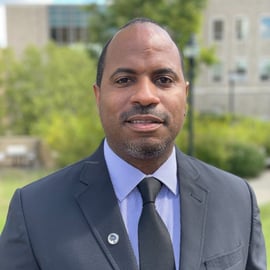
Derrick Brooms
Executive Directory, BMRI/Professor
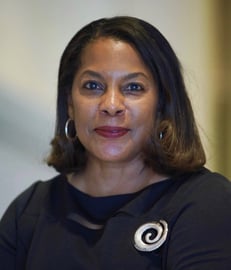
Vicki Crawford
Professor and Program Director
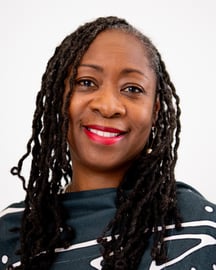
Monique Earl-Lewis
Associate Professor NTT
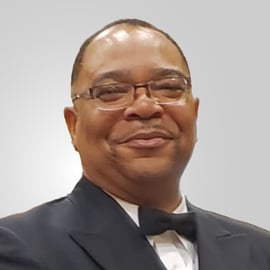
Ovell Hamilton
Professor
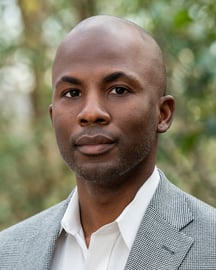
Worth Hayes
Associate Professor
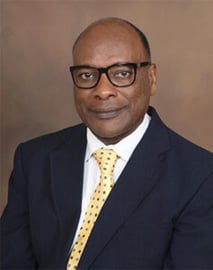
Haile M. Larebo
Professor
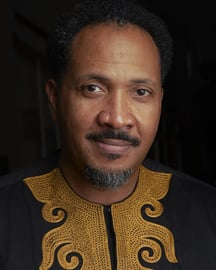
Samuel T. Livingston
Associate Professor
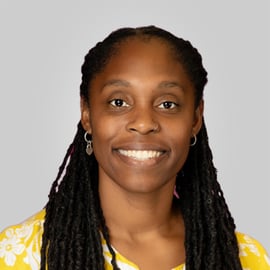
Lesley Mackinson
Department Coordinator
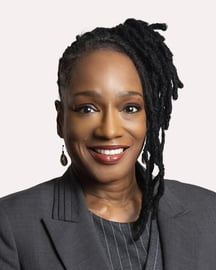
Clarissa Myrick-Harris White
Professor
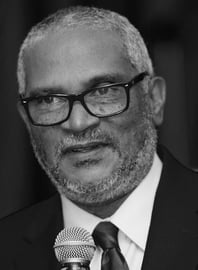
Michael Simanga
Professor

Karcheik Sims-Alvarado
Assistant Professor and Program Director, Africana Studies
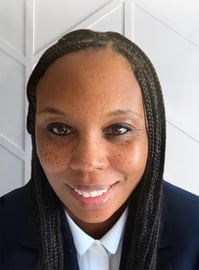
Janira Teague
Assistant Professor